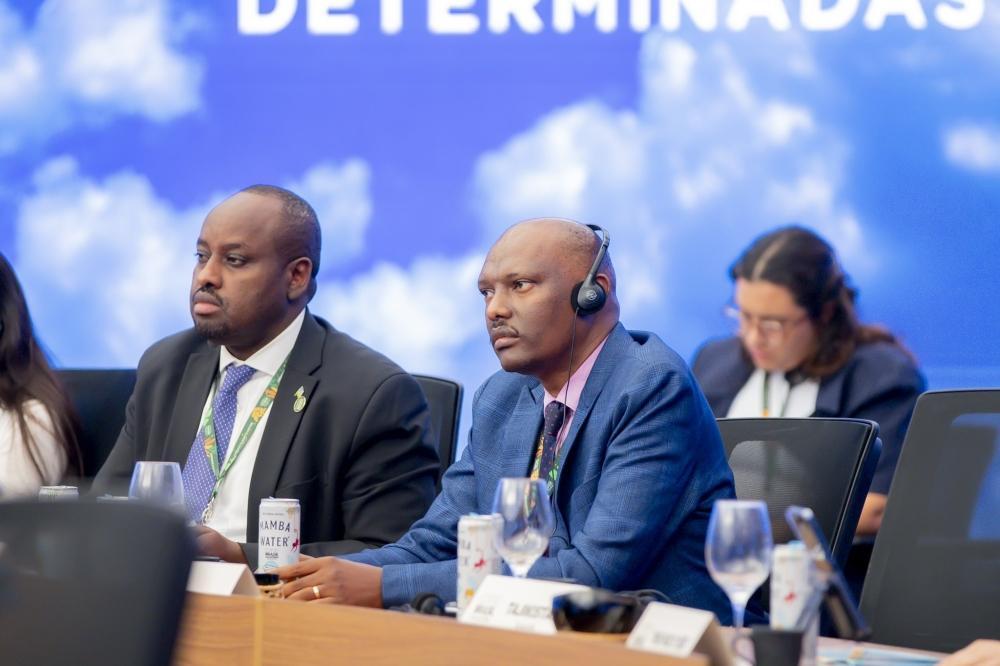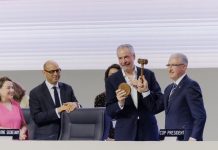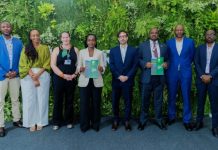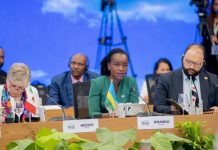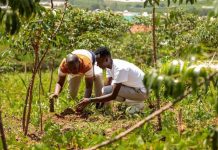Africa-Press – Rwanda. The first week of COP30 talks in Belém, Brazil, has been marked by intense debate over adaptation finance and the Loss and Damage Fund, as negotiators push for stronger support for countries hardest hit by climate change.
Faustin Munyazikwiye, Rwanda’s lead climate negotiator and Deputy Director-General at the Rwanda Environment Management Authority (REMA), told The New Times that discussions are unfolding across three parallel tracks: technical negotiations, ministerial consultations, and Presidency-led talks.
He said the COP30 Presidency on Tuesday, November 18, released a draft text titled “Global Mutirão: Uniting humanity in a global mobilisation against climate change,” covering four agenda items under negotiation since last week.
The first concerns the implementation of Article 9.1 of the Paris Agreement, which mandates climate finance from developed to developing countries. The second addresses international cooperation and concerns over trade-restrictive unilateral climate measures.
The third focuses on responding to the NDC synthesis report and closing the 1.5°C ambition gap. The fourth relates to reporting and review under Article 13, specifically Biennial Transparency Reports (BTRs).
Meanwhile, technical negotiations are also continuing on the Global Stocktake (GST), the Just Transition Work Programme (JTWP), the Mitigation Work Programme (MWP), finance, and adaptation.
“Rwanda’s delegation is happy with the progress, especially as the COP presidency last night published what we call the Belém Political Package covering draft decisions for the mutirão and several other agenda items,” Munyazikwiye said. “Today, November 19, we expect another iteration of the package after a sleepless night for negotiators.”
He welcomed the announcement by developed countries pledging around US$135 million to the Adaptation Fund.
Concerns Persist
Despite some progress, Rwanda remains worried about key unresolved issues.
Munyazikwiye said contentious items especially those critical to African countries remain stuck. The adaptation finance text still contains bracketed options, signalling a lack of consensus.
“This shows we still have a long way to go,” he said. “The text on Article 9.1, which relates to mandatory finance from developed to developing countries, still has five options, including one that proposes having no text at all. This puts us in a difficult position.”
Climate finance remains the most divisive issue. Under the new climate finance target agreed in Baku in 2024—described by many developing countries as inadequate—Azerbaijan and Brazil drafted the Baku–Belém Roadmap to scale up funding to US$1.3 trillion.
However, the roadmap was unveiled shortly before COP30 and has been criticised for downplaying the responsibility of developed nations to provide public climate finance.
Loss and Damage Fund: Slow and Uneven Progress
Climate activists, including Rwandans, say the negotiations on the Loss and Damage Fund (FRLD) have been disappointing.
Grace Ineza Umuhoza, founder of The Green Protector and one of Rwanda’s junior negotiators, said progress remains far below expectations.
“I’m not happy so far. The review of the Loss and Damage mechanism is not moving in the positive direction I hoped for,” she told The New Times on Wednesday, November 19. “Today is our last day… maybe things will turn around.”
The Loss and Damage Collaboration (L&DC), a global youth alliance, expressed concern over what it called “abysmal” financial pledges. By the end of week one, only two commitments had been announced: €20 million from Spain and 1 million Swiss Francs from Switzerland for the Santiago Network.
“These pledges are welcome but are a drop in the bucket compared to the scale of needs,” the alliance said, noting that at least US$724 billion is required annually to address loss and damage in developing countries.
On the first day of COP30, the FRLD launched its call for funding requests for the start-up phase, with US$250 million available. Developing countries can submit proposals worth US$5–20 million between December 15 and June 2026. Approvals are expected to begin in July 2026.
The alliance said US$250 million is “a drop in the ocean” compared to projected needs of US$395 billion in 2025 alone. It called for at least US$400 billion annually and a mechanism that can respond within 48 hours of climate-driven disasters.
Fossil Fuel Phase-Out Still Divisive
Brazil said on Tuesday that it hopes to resolve several contentious issues ahead of schedule, though deep divides persist—especially on fossil fuel phase-out and long-term finance.
A coalition of 82 countries has issued a strong call for a global roadmap to phase out coal, oil, and gas. The proposal has raised pressure on negotiators to secure an ambitious final agreement.
But many developing nations insist that progress on fossil fuels cannot be separated from unresolved climate finance commitments, transparency gaps, and long-term adaptation support, which remains severely underfunded.
For More News And Analysis About Rwanda Follow Africa-Press

